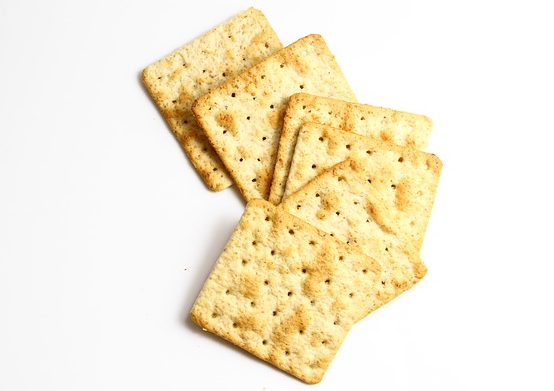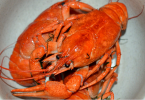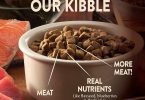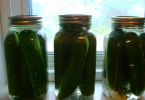Today’s question: can dogs eat crackers? Scroll down for detailed answers.
Everyone loves crackers and a cracker package can be found in most every household. Across the globe, most all people have access to crackers and enjoy the crispy wafer either as a snack or with a meal. Most people have a jar of crackers stashed somewhere in their kitchen or a pantry and eat the cracker regularly. The varieties of crackers available are just as plentiful as the people who love them.
Crackers are made in every size, shape, and color, as well as with most any seasoning of flavoring. Depending upon your geographic location, the cracker popularity may lean towards a particular type of cracker or seasoning above another.
Crackers are great to munch on every now and then, and in moderation. Eating a lot of crackers often may lead to weight gain, poor nutrition, and high sodium content.
Many crackers are laden with salt, and even low sodium varieties can cause high sodium results in people who indulge too much in the cracker of their choosing.
The good thing about crackers is that the wafer is small, portable, and almost always fresh. The cracker does not rot or mold as often as other foods and crackers do not generally harbor dangerous bacteria that other foods are prone to developing.
As far as dogs are concerned, the cracker may resemble a dog treat and be easy to offer.
Many cracker varieties have small dimensions which are why they could make the perfect treat for dogs.
But, can dogs eat crackers?
If you are reading this, you are most likely a dog owner wanting to share some crackers with your furry pal. In this article, we will discuss all about different crackers and if they should be fed to dogs.
Can Dogs Eat Crackers?
Yes. dogs can have crackers occasionally. Giving dogs some crackers on occasion is definitely not a terrible thing to do.
The problem is when giving your dog’s crackers becomes a habit; it may pose some health risks.
Dogs may also become expectant of eating crackers rather than their normal food and develop poor eating habits.
A dog that enjoys crackers and is given them often may become so finicky that his/her regular kibble is deemed unacceptable and is shunned.
In small amounts, crackers are not dangerous for your dog. However, when eaten excessively, crackers can cause stomach problems in canines.
Human food is safe to give to dogs in small amounts and only on occasion.
The reason for stomach upset and digestion issues in dogs is because dogs are not meant to eat the processed foods we offer them, such as crackers.
Crackers are generally made within a factory after combining a great number of ingredients together. The ingredients are not safe for dogs, or deemed nutritious in most regards.
Dogs are dependent upon whole foods to keep them healthy and strong.
Make sure not to create a habit out of feeding crackers to your pet. This way, you will avoid any developments of health problems and nutritional deficits in your dog in the long run. Problems in your pup’s health can often be caused by consuming foods that have initially been destined for humans.
Additionally, do not feed any crackers to your pooch which contains toppings such as hummus, ranch, guacamole etc. These foods may contain other toxic ingredients such as garlic and onion which are detrimental to dogs.
When dipping your own crackers into your favorite addition, such as ranch dip and bean dip, and all others, be mindful that these ingredients also pose a risk for your dog.
While avocado (without the pit) and beans are okay to offer your dog on occasion, they are not safe to offer in an altered state on top of a processed food such as a cracker.
In the event you dog has eaten an entire plate of crackers, as well as the dips and cheese that go along with the cracker spread, be sure to keep an eye on your dog for possible side effects and stomach upset.
The dog should probably be put outside until the excess food is relieved from his/her system, and also be made as comfortable as possible while the food I digested. Your dog will probably be uncomfortable and suffer from stomach upset and gas until the digestion is complete.
You may need to call your veterinarian to ensure your dog has not ingested foods at a toxic level and also get advice on how to handle the dog in the event of a reaction.
Concerns About the Level of Sodium
Unlike any other foods, crackers may contain a high amount of salt. This ingredient is added in order to enhance the taste of crackers. If you take a look at the food’s label, you will see the amount of salt displayed.
Those nutritional facts have been created for humans, not for dogs. Just because the sodium level is deemed safe for human consumption, one should not assume the amount is also safe for canine consumption.
Low sodium crackers may be deemed as ‘safer’ for humans, but this is not always true for dogs as well. Added sodium should be avoided at all costs for dogs.
Dogs receive their daily sodium content from their kibble and do not need to add crackers to their diet to increase sodium levels.
The sodium requirements for dogs are even lower than they are for humans. Sodium is difficult to avoid even as a human, avoiding sodium for dogs is even more important.
Most dogs get their daily salt intake already from the regular dog food. Adding more sodium to your dog’s diet in combination with the fatty content of this wheat treat is definitely not a good thing to do.
Dogs do not need added fat along with extra sodium.
The cracker is tempting to offer your dog considering the healthy reputation of the cracker, but overall, the sodium content and the fat content are a bit too high for any dog to digest without issue.
Offering you dog food with high sodium content is not an ideal situation, no matter the breed and size of your dog. Salty food will only produce excessive thirst and urination. Dogs will end up drinking more water than they normally should.
Large amounts of salt may also lead to sodium ion poisoning to dogs.
Symptoms of salt poisoning are diarrhea, vomiting, tremors, depression, seizures, elevated body temperature and death.
While your dog would have to ingest a large amount of crackers to be at risk for salt poisoning, the risk is still present and should be avoided.
Also to be considered is hiding the crackers you do have, and keeping the crackers out of reach of your dog. Even though you may not offer crackers to your dog, your dog may find the crackers on his/her own and ingest more than is safe and put him/herself at risk of poisoning without your intention.
The bottom line is that one or two small crackers will not cause any significant harm to your dog and he will most likely be fine.
However, crackers should not be fed to dogs regularly. It is better to treat your dog with healthy snacks instead such as pieces of fruits and vegetables.
Can Dogs Eat Unsalted Crackers?
Unsalted crackers are also not recommended for dogs either. They have moderate amount of calories and are simply made out of flower that has no nutritional value to dogs.
Offering snacks to your dogs that are without nutritional content will only raise your dog’s weight and raise their finicky eating behaviors.
A better snack alternative is to give pieces of apples, watermelon, carrots or green beans among other fruits and vegetables that are safe for dogs to eat occasionally.
Can Dogs Eat Graham Crackers or Other Sweet Cracker Varieties?
Graham crackers given occasionally will not harm your dog but regular intake of these crackers will most likely lead to obesity.
Graham crackers have less salt than a saltine cracker, but still offer little to no nutritional benefit to your dog and little reason for eating other than boredom.
Additionally, too many sugary treats can also lead to obesity, dental problems, and possibly the onset of diabetes.
1 graham cracker (2 – 1/2″ square) contains 2 grams of sugar and 5 grams of carbohydrates. Dogs do not need added sugar and carbohydrates in their diet any more than humans do.
Avoiding excess sugar and carbohydrates will help ensure your dog has a healthy weight and disposition.
What Dog Treats Should I Give My Dog?
If you are looking for some great snack ideas, try looking for the special treats that you can find in pet stores.
They are loaded with all the nutritional benefits dogs need in order to develop harmoniously and healthy. Just the simple opening of a new bag of treats will bring the light to their faces. Not only will they be satisfied by the opportunity to eat something they do not encounter on a daily basis, but they will also take in a great amount of vitamins and nutrients.
So, put away any crackers you might think about giving your pets and go for a healthy treat instead! Plus, the money you pay on crackers can be invested in a more qualitative treat.
Conclusion
So, when it comes to sharing the crackers with your four-legged friend, remember that it is better to keep them to yourself.
You might think that eating the same food day after day might be boring for your dog, but dogs don’t mind that. As long as the food is tasty and fills his/her stomach, this is all your pooch cares about.
Dogs do not have the same perception about food as we do. They see it as a fuel and nothing more. This is why you should make sure that the fuel has a superior quality as compared to others.
When it comes to treats, crackers are one of the poorest choices you could make. If you really care about your canine friend, then his/her health should be a priority for you. So, make sure you provide that.








Leave a Comment